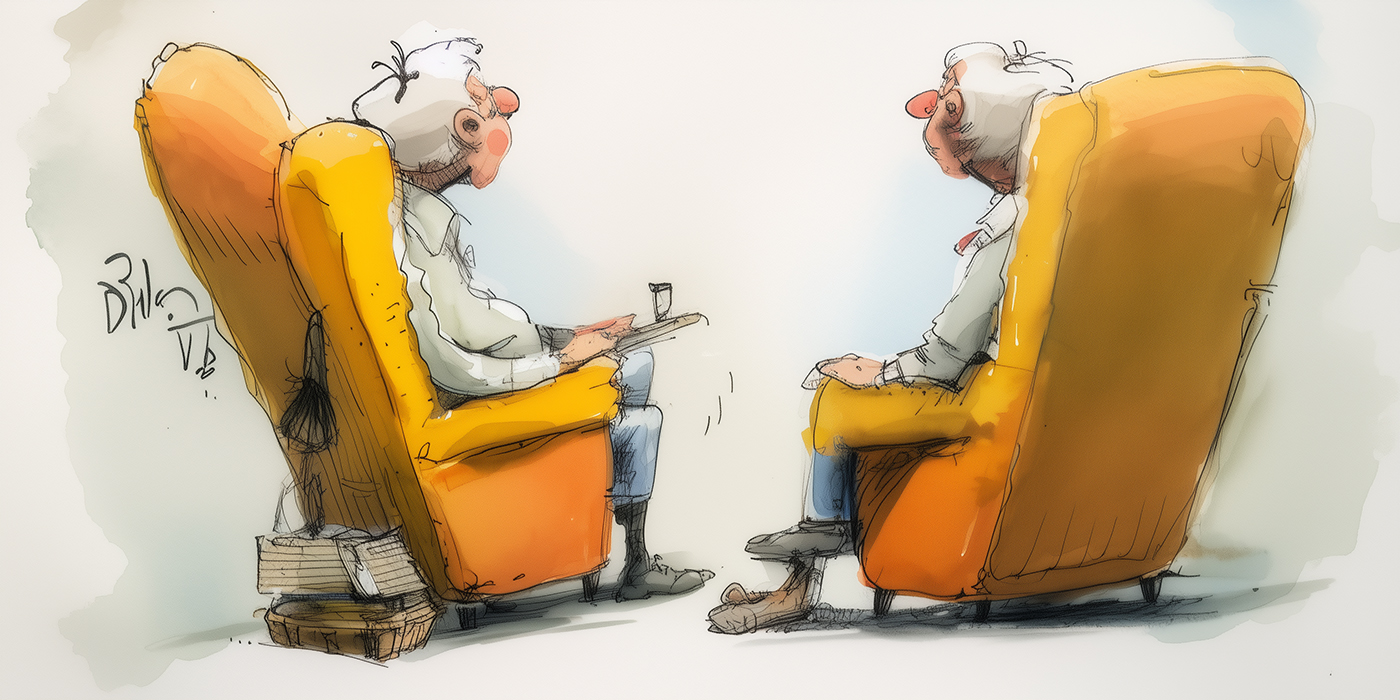
I recently celebrated my fifth sobriety anniversary in SA and I’ve never been grateful enough for that. I remember talking to an oldtimer after a meeting in my country. I was still new to SA. He had been in the program for eight years. I asked him what to do with my friends if I’m to stay sober. He told me that you can’t have relationships with friends from your old life because it’s dangerous and it might make you relapse.
I was shocked. I was very lonely and I only knew some friends from when I completed my bachelor’s degree at university. We used to gather every two weeks in a mixed party of lustful men and women. Alcohol, drugs, and cigarettes would be served. All my friends were like that. I couldn’t even imagine having fun or joy without chatting, gathering, partying, and traveling with them. On the other hand, I was doing terrible and my life was unmanageable. I didn’t have any other choice. So, I told myself that I would follow the oldtimer’s instructions for a short period of time. I would just not call those friends for a few weeks.
After attending meetings for a while and starting the Step work, I realized that I could not get in touch with any “playmates.” This is an expression we use in Iran to mean the people we used to lust after, or past acting-out partners. I accepted that reality and deleted the phone number of every one of those friends I used to hang out with. I also left many groups in social media apps. I felt lonely and I didn’t know what to do on weekends or during holidays.
One day, a recovery fellow after a meeting asked me to go out together to eat ice cream and I accepted. It’d been several months since I had eaten out with anybody. It was fun, but we did have a negligible discussion about paying for ice cream. My first time out with a recovery fellow and only a small challenge! It was then that I realized how I could fill the empty space created from letting go of my past life. I could have fun and even travel with my recovery fellows. We started going into nature on the weekends and barbecuing.
When I reached 10 months of sobriety, my sponsor relapsed. It was a shock. I tried to find a new sponsor in Tehran, but I couldn’t. As a result, and after talking with recovery fellows, I decided to go to Isfahan to find a sponsor. I went to Isfahan with two recovery fellows – my first trip to SA.
A friend from Isfahan proposed that I use one of his properties for accommodations. Another friend took us to meetings. Still another one took us to the historical and beautiful places in Isfahan. Another fellow even invited us to have a local dish called Biryani for lunch.
We booked a room in a hotel and went to three meetings a day – morning, noon, and evening. Between meetings we went around the city with recovery fellows. Unfortunately, I couldn’t find a sponsor during that trip. But I found a lot of love, companionship, and new friends. What a blessing!
I had similar experiences with other fellows in the following years. We went on a lot of trips together around Tehran, my home province. We also visited other provinces in Iran, like Shiraz and Khuzestan. I learned a lot on these trips and enjoyed the companionship of my recovery fellows. As I’ve heard from my sponsor and other fellows, the fellowship is a safe place to exercise recovery in relationship with others.
As I build relationships, I try to exercise unconditional love, acceptance, forgiveness, and honesty. That last one is the most difficult for me. Being honest with myself is still a big challenge. For example, I started a new type of eating style about two months ago. On the last trip I went with recovery fellows, it was hard to find somewhere which had appropriate foods with regards to my eating style. One of the members was looking for a special type of place and most of the time the food at the restaurant wasn’t satisfying and would trigger my overeating.
I needed other types of food, but I couldn’t be honest with myself. I was behaving in a codependent way. I thought we had to be together in every place and activity. But after that trip, when I talked with my sponsor, I realized it was my disease. I was being overly dependent. I could have told my fellows that I would go find another restaurant with convenient food for me to eat. But instead of doing that, I started to become resentful toward myself. Again, I am still in the process of learning to be honest with myself.
Another thing that we have to be careful of is having a newcomer or chronic relapser with us on a trip. I have some experience in that regard. I think it is very important to remember that if I am a newcomer, I should avoid having trips with other newcomers or a chronic relapser unless there is an oldtimer or a member with a considerable length of sobriety with us.
I once had a newcomer with me on a trip and it was a very powerful experience in dealing with my ego and trying to be tolerant and lenient. It was very hard and troublesome. It helped me to realize that having years of sobriety and recovery doesn’t mean that I know everything or that I am better than a newcomer or chronic relapser. It doesn’t mean that I can manage them or try to convince them of recovery. As we say in our Traditions, “Our public relations policy is based on attraction rather than promotion.”
I can’t talk to a newcomer about spirituality and recovery, but I can behave based on my own recovery. Newcomers and chronic relapsers are very keen to find a contradiction between my talk and my behavior. It can be hard for me to try to behave based on recovery instead of talking so much about it. It’s a big challenge, but I like it.
Moein M., Tehran, Iran






